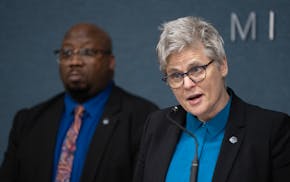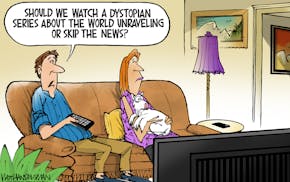COUNTERPOINT
Citizens United needs no clarification
In his Jan. 21 commentary "Citizens United: Four years (and billions of dollars) later," Jeremy Schroeder of Common Cause Minnesota proposes a constitutional amendment that would "clarify that constitutional rights apply to real people, not special interests, and that money is not speech." He is wrong to do so.
The problem with Citizens United, if there is one, is neither that it extends First Amendment rights to corporate and other entities nor that, under current law, it permits donors to a cause to remain anonymous. We've recognized a First Amendment right of free speech in such entities for decades, though commercial speech has been deemed the most susceptible to government regulation.
Speech is only one facet of the First Amendment. Another is the right of free association, in this case, the right to associate with others of a like mind in order to press for political change. (Ironically, Common Cause is itself a nonprofit corporation devoted to precisely this concept.) The form in which we gather to voice our concerns is and should be irrelevant to our right to do so.
Schroeder also is wrong when he says that "money is not speech." One might as well limit the use of paper, pen and contemporary media in disseminating one's point of view as limit the amount of money that may be spent in that pursuit. The effect is the same.
If there is a problem with Citizens United, it is in the anonymity it permits under current law. But is that a problem? Does Common Cause wish to disclose its donors and the amounts they have contributed each year to the public at large? Most likely not. In fact, we have a long tradition of anonymous political discourse in the United States. Schroeder might do well to remember that Thomas Paine published "Common Sense" anonymously 228 years ago this month. The law is not intended to be the tool of either side in a political debate. The Constitution, above all, should be immune from such use.
JAMES M. HAMILTON, St. Paul

BWCA's future likely hinges on election
Saving the dinosaurs: Why there's a future for community newspapers
Readers Write: Gun storage laws, Uber and Lyft, 24/7 businesses, the pipe organ


